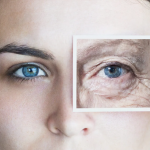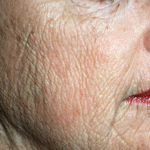Ageing is a natural process that affects every individual, often accompanied by various physiological changes, including alterations in skin health and appearance. While we cannot halt the passage of time, emerging research suggests that certain medications, such as Metformin, traditionally used to manage diabetes, may hold promise in mitigating some of the effects of ageing, including those on the skin.
What is Metformin?
Metformin is a widely prescribed medication primarily used to manage type 2 diabetes. It belongs to the class of drugs known as biguanides and works by reducing glucose production in the liver and improving insulin sensitivity in the body. However, its potential benefits extend beyond glycaemic control.
How Does Metformin Influence Ageing?
The potential anti-ageing effects of Metformin stem from its ability to activate an enzyme called adenosine monophosphate-activated protein kinase (AMPK). This enzyme plays a crucial role in cellular energy metabolism and is known to regulate various cellular processes, including those involved in ageing.
By activating AMPK, Metformin may promote several mechanisms that counteract ageing, such as:
- Reducing Oxidative Stress: Metformin has been shown to decrease the production of reactive oxygen species (ROS), thereby reducing oxidative stress, a key contributor to ageing. By combating oxidative damage, Metformin may help preserve cellular integrity and function.
- Enhancing Mitochondrial Function: Mitochondria are the powerhouse of the cell and play a vital role in energy production. Metformin has been found to improve mitochondrial function by promoting mitochondrial biogenesis and reducing dysfunction, which can decline with age.
- Inhibiting Inflammation: Chronic inflammation is a hallmark of ageing and is implicated in various age-related diseases, including skin disorders. Metformin has anti-inflammatory properties, which may help dampen inflammation and its detrimental effects on ageing tissues, including the skin.
- Modulating Cellular Senescence: Cellular senescence refers to the irreversible arrest of cell division and is associated with ageing. Metformin has been shown to modulate cellular senescence pathways, potentially delaying the onset of age-related changes.
The Correlation Between Metformin and Skin Ageing
The skin is the body’s largest organ and undergoes significant changes with age, including loss of elasticity, increased dryness, wrinkles, and pigmentation changes. Several studies have investigated the effects of Metformin on skin health and ageing, with promising findings:
- Collagen Production: Collagen is a protein that provides structural support to the skin. Ageing is associated with a decline in collagen production, leading to sagging and wrinkling. Preclinical studies have suggested that Metformin may promote collagen synthesis, thereby improving skin elasticity and reducing wrinkles.
- Wound Healing: Impaired wound healing is a common issue in ageing skin. Metformin has been shown to enhance wound healing processes by promoting angiogenesis (formation of new blood vessels) and accelerating tissue repair, which may have implications for ageing skin.
- Photoageing Protection: Exposure to ultraviolet (UV) radiation from the sun is a major contributor to skin ageing, known as photoageing. Studies have indicated that Metformin may protect against UV-induced damage by reducing oxidative stress and inflammation, thereby preventing premature ageing of the skin.
Best Advice for Using Metformin to Combat Ageing
While the potential anti-ageing effects of Metformin are intriguing, it’s essential to approach its use with caution:
- Consult Your Physician: Metformin is a prescription medication primarily indicated for the management of diabetes. Before considering its use for anti-ageing purposes, consult with your physician to assess potential risks and benefits, especially if you do not have diabetes.
- Start Low, Go Slow: If your physician approves the use of Metformin for anti-ageing purposes, start with a low dose and gradually titrate upwards as tolerated. This approach can help minimize side effects such as gastrointestinal upset, which are common with Metformin use.
- Monitor for Side Effects: Regular monitoring is crucial when using Metformin, as it can occasionally cause side effects such as gastrointestinal disturbances, vitamin B12 deficiency, and lactic acidosis. If you experience any adverse effects, notify your physician promptly.
- Adopt a Comprehensive Approach: While Metformin may offer benefits for ageing skin, its effects are likely to be most significant when combined with other healthy ageing practices. Maintain a balanced diet, regular exercise regimen, adequate hydration, sun protection, and skincare routine to maximize overall skin health.
In conclusion, while more research is needed to fully understand the anti-ageing potential of Metformin, emerging evidence suggests that it may offer promising benefits for skin health and ageing. However, it’s essential to use Metformin judiciously under the guidance of a healthcare professional and in conjunction with other healthy ageing practices for optimal results.










